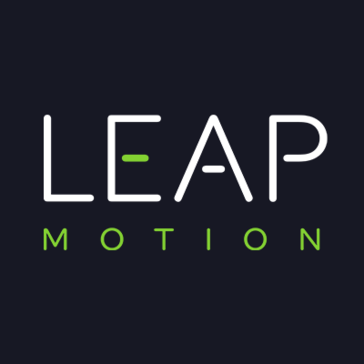Best Virtual Reality (VR) Software Development Kits
Best Virtual Reality (VR) Software Development Kits At A Glance
G2 takes pride in showing unbiased reviews on user satisfaction in our ratings and reports. We do not allow paid placements in any of our ratings, rankings, or reports. Learn about our scoring methodologies.
- Overview
- User Satisfaction
- Seller Details
360° media, consisting of 360° videos and images, is a great way for developers to enhance traditional apps with immersive content. You can embed a 360° video into a travel app to provide viewers with
- Marketing and Advertising
- Computer Software
- 62% Small-Business
- 27% Mid-Market
32,691,321 Twitter followers
- Overview
- User Satisfaction
- Seller Details
Daydream is a mobile VR platform that offers high quality, affordable VR at Android scale. Daydream enables immersive VR experiences by using advanced techniques to predict the orientation of the user
- Information Technology and Services
- Computer Games
- 69% Small-Business
- 19% Mid-Market
32,691,321 Twitter followers
- Overview
- User Satisfaction
- Seller Details
Hyprface captures liveness, bringing your character alive with your own expressions.
- 54% Small-Business
- 38% Mid-Market
863 Twitter followers
- Overview
- Pros and Cons
- User Satisfaction
- Seller Details
ArborXR is an AR & VR device management platform. More than 3000 companies in 90 countries are already using ArborXR to manage their VR & AR fleets. With ArborXR you can manage your devices, d
- CEO
- Higher Education
- Education Management
- 63% Small-Business
- 27% Mid-Market
336 Twitter followers
- Overview
- User Satisfaction
- Seller Details
Intel RealSense SDK 2.0 is a cross-platform library for Intel RealSense Depth Cameras (D400-series). It features everything you need to start coding your own projects and debugging your camera setting
- Computer Software
- 75% Small-Business
- 13% Mid-Market
4,815,354 Twitter followers
- Overview
- User Satisfaction
- Seller Details
InstaVR is a web service that allows you to create your VR app with a few clicks.
- Market Research
- Marketing and Advertising
- 43% Enterprise
- 40% Mid-Market
8,722 Twitter followers
- Overview
- User Satisfaction
- Seller Details
Varwin is an innovative VR company offering its services to corporate clients since 2015. Our team consists of 50+ engineers, visual artists, strategists, and industry experts to offer its services in
- 58% Mid-Market
- 25% Small-Business
140 Twitter followers
- Overview
- User Satisfaction
- Seller Details
Upskill your employees at scale and reduce training time with Virtual Reality Uptale is the Enterprise Immersive Learning platform designed for businesses to create, share and track interactive train
- 50% Small-Business
- 25% Enterprise
727 Twitter followers
- Overview
- User Satisfaction
- Seller Details
Volograms is a technology startup on a mission to bring reality capture closer to everyone. Our technology uses a set of videos taken from different viewpoints and transform them into volumetric holog
- 64% Small-Business
- 18% Mid-Market
2,466 Twitter followers
- Overview
- User Satisfaction
- Seller Details
Truly immersive VR starts with your hands. Build your next reality with the Orion beta.
- Information Technology and Services
- Computer Software
- 65% Small-Business
- 20% Mid-Market
308 Twitter followers
- Overview
- User Satisfaction
- Seller Details
Create immersive VR experiences at Google scale.
- 48% Small-Business
- 26% Mid-Market
32,691,321 Twitter followers
- Overview
- User Satisfaction
- Seller Details
A web framework for building virtual reality experiences
- 80% Small-Business
- 10% Enterprise
14,088 Twitter followers
- Overview
- User Satisfaction
- Seller Details
Project Play enables you to make amazingly rich interactive 3D presentations on the web (and experience them on the web, mobile or VR) – without programming. It's an in-browser node-based editor, requ
- 65% Small-Business
- 26% Mid-Market
282,926 Twitter followers
- Overview
- User Satisfaction
- Seller Details
With MakeVR Pro, creating precision 3D content in a virtual environment, whether for 3D printing or import into other applications, has never been easier. MakeVR Pro is a CAD based fully immersive 3D
- 53% Small-Business
- 27% Mid-Market
31,852 Twitter followers
- Overview
- User Satisfaction
- Seller Details
Turn Autodesk's powerful, cloud-based software into the building blocks for your next tool or product.
- Architecture & Planning
- 43% Mid-Market
- 29% Enterprise
282,926 Twitter followers
Learn More About Virtual Reality (VR) Software Development Kits
What are VR SDKs?
Virtual reality software development kits, or VR SDKs, provide the building blocks to design, build, and test VR experiences. Virtual reality is a simulated experience or artificial world that can be similar or different from the real world. There are three types of VR: Fully-immersive, semi-immersive, and non-immersive. These virtual environments are created primarily by developers, who often utilize virtual reality software development kits. These SDKs are the tools to create VR experiences such as mobile apps, marketing experiences, and training simulations.
VR SDKs offer developers the tools to perform VR-related functions such as adding and editing 3D objects and models. Additionally, these tools allow flexibility for non-developers, with many systems providing drag-and-drop functionality to customize experiences. These toolkits may sometimes be customized through the use of an application programming interface (API). While SDKs are typically intended for specific frameworks and hardware, some are supported on multiple systems. While some VR SDKs also have the functionality to create augmented reality (AR) experiences, these tools should not be confused with AR SDKs, which give developers the tools to specifically develop and test augmented reality apps.
What Do VR and SDK Stand For?
VR stands for virtual reality. While virtual reality experiences can vary, it is often presented as an immersive yet artificial environment designed to feel seemingly real or authentic to the user. Exactly how real it feels depends on the virtual reality application and the level of realism the designer aims for.
SDK is short for software development kit. SDKs are a combination of tools and programs designed to aid in software development. These tools include, but are not limited to, code samples, documentation, and APIs.
What Types of VR SDKs Exist?
There are three types of VR, each of which requires different needs from software development. Each type of virtual reality can benefit in different ways from investing in VR SDK.
Fully-immersive VR
Fully-immersive VR probably best matches what most users think of when they think of virtual reality. Fully-immersive VR is often used for entertainment, especially VR game engines, utilizing VR headsets to simulate a reality experience. Oculus, Oculus Rift, Google VR (Google Cardboard), and HTC Vive are all examples of fully-immersive VR platforms.
Semi-immersive VR
Semi-immersive is a partially immersive environment or a mixed reality environment. This type of VR is often utilized for educational purposes or training simulations. Software development components may include graphical computing tools and large projector systems.
Non-immersive VR
Non-immersive virtual reality has become so ingrained in our day-to-day life that we may not even realize we are engaging in it. Non-immersive can include less intense video and computer games.
What are the Common Features of VR SDKs?
The following are some core features within VR SDKs that can help users:
Motion tracking: Motion tracking, also known as motion sensing, lets VR users interact with their environment naturally. Once motion has been detected, data is collected and processed based on this movement to fit into the context of immersive VR experiences. Developers utilize VR SDKs to create visual and auditory triggers depending on the user’s motions.
API: APIs allow users to create compatible VR apps that work in unity with various types of VR hardware. Developers call routines from their codes, and the APIs connect these different systems and technologies together.
Drag and drop: Many of the latest VR SDK options have drag-and-drop capabilities for app development. This means that rather than having a developer manually update and work on the code, a non-developer can self-serve their own needs. Frequently, this comes in the drag-and-drop form, where the user simply drags a component from one part of the screen and drops it down into another area.
Model editing and uploading: Another important feature of VR SDK is the ability to upload and edit models. After developers create a VR model, an SDK can assist them in uploading it into the cloud. Even after the model has been uploaded, VR SDK can aid developers with editing VR models without having to shut down or remove them from the cloud.
Audio editing: VR SDK can be utilized to enhance the audio of virtual reality applications and programs. Audio VR SDKs can even replicate how sound waves interact between human ears and the natural environment.
What are the Benefits of VR SDKs?
App development and editing: VR SDKs are primarily responsible for developing VR applications. By utilizing VR SDKs, developers have tools to make edits as needed, optimize VR as required, and prototype entirely new VR experiences. Potential VR edits can include adding, cloning, and moving 3D objects.
Efficiency: Since these applications often have drag-and-drop capabilities, they allow users without a coding background to self-serve their own needs. This saves the user time, as they can pull the data they need without requiring the aid of a developer. It also saves developers time, as they are no longer required to fill all data requests themselves. This frees them up to work on more technical, high-level tasks.
Standardization: By investing in virtual reality software development kits, businesses will have a standard set of software development tools at their disposal. This ensures that developers are working with a similar set of tools in a centralized setting. This avoids confusion among users about what tools they should be utilizing and ensures that the tools users are compatible with existing VR systems and operating systems.
Who Uses VR SDKs?
Developers: The bulk of software development, particularly the more complex work, will be conducted by developers. Developers can utilize VR SDKs to take on challenging work that business users would not be expected to do on their own.
Business users: While some work requires developers, there are aspects of VR development that can be conducted by non-developers or business users. This is mainly true for VR SDKs that can include drag and drop options, which are no-code. The simplicity of drag and drop empowers business users and saves time for developers.
What are the Alternatives to VR SDKs?
Alternatives to VR SDK can replace this type of software, either partially or completely:
VR game engine: A virtual reality (VR) game engine, or VR game engine, provides game developers with the framework for creating a VR video game experience. These tools enable developers to create and edit 3D characters and fully immersive 3D experiences. VR game engines often include features of VR SDK. They are different, however, as VR SDKs can be utilized for more than just gaming technology.
VR visualization software: VR visualization software allows users to experience aggregated data in a virtual environment. Data visualization enables users to see analytics presented visually so they may fully understand what the data is communicating. VR visualization is used across multiple industries, allowing engineers, designers, and other professionals to work with real-time data. While VR visualization can be a tool included with VR SDKs, VR SDKs offer more than just visualization capabilities in their collection of provided tools.
Software Related to VR SDKs
Related solutions that can be used together with VR SDKs include:
VR content management systems: Organizations use VR content management systems (CMSs) to collect, store, and analyze all VR content in a centralized location. Users may upload 360-degree videos and images directly onto these platforms and edit them within the solution. The videos and images from VR content management software can be manipulated as needed by editing tools included in VR SDKs.
VR marketplaces: These are publicly available online platforms used to explore, share, find, and purchase VR content, such as mobile games. Some VR marketplaces provide developers with a platform to design content and host their VR creations, which will then host the overall VR experiences. This is important for VR SDKs, or any virtual reality technology, as VR marketplaces are a key area for purchasing and discussing VR apps.
VR training simulator software: VR training simulators can be used in almost any industry to help train users in an immersive virtual environment. VR SDK is the building block for various virtual reality apps, including VR training simulations.
Challenges with VR SDKs
Lack of compatibility: VR SDKs are often designed with specific frameworks and hardware in mind instead of being cross-platform. This can be an issue for businesses, as they often have to buy a specific brand of VR SDK to ensure that they can connect with the VR technologies an organization currently has and plans to adopt in the future. Before purchasing VR software development kits, a business should determine upfront how compatible the tools will be with existing frameworks and hardware.
Emerging technology: Like any emerging technology, virtual reality development will have some growing pains. Many businesses may be working with VR for the first time. This means that users will have to be educated on how to use VR, what it is, and what it is used for. VR companies are also relatively new and prototyping, so there may be challenges on their end as they work out the kinks to gain more cutting-edge features.
How to Buy VR SDKs
Requirements Gathering (RFI/RFP) for VR SDKs
The requirements for VR SDK application development can sometimes be fairly straightforward, as these tools do not offer much customization. That being said, buyers seeking VR SDKs should consider several key factors. Important considerations include, but are not limited to, the pricing model, the user experience, and the ability to integrate with existing hardware and frameworks related to VR.
Compare VR SDK Products
Create a long list
Buyers should start by seeking out different service providers for the right fit, given the timeline, scope, and resources the organization has at its disposal. Once these factors are identified, buyers can then use G2.com and other online resources to research the top products on the market.
Create a short list
After identifying these key factors, buyers can dig deeper into finding a service provider that fits their needs. Companies should consider the bandwidth of developers on their teams. Companies should also consider what pre-existing software they already have on site and what additional software they may need to purchase.
Conduct demos
Companies should walk through a demo of each product they are considering purchasing. This allows them to get an up close and personal view of the app development, its functionality, and how it fits into the company's current backend and frontend infrastructure.
Selection of VR SDKs
Choose a selection team
The selection team should include a mix of roles and titles that would interact with VR SDKs. First and foremost, at least one member of the development team should be involved, as they would be most likely to interact with VR SDK regularly and provide the needed technical expertise. Other roles may be dependent on use cases. For example, if the tool is purchased to assist in VR simulation, the roles involved may differ from those purchased for an immersive VR marketing experience.
Negotiation
While some vendors will have a set cost pricing model to follow, others may be open to negotiation. Organizations should research before the negotiation phase to ensure that what they are asking for is a reasonable price.
Final decision
Ultimately, organizations must decide which product they want to go forward with. Companies should consider what specific features, use cases, and capabilities they are looking for depending on their organizational needs.
Implementation of VR SDKs
How are VR SDKs Implemented?
VR SDK is versatile enough to be implemented across multiple deployment methods. This includes SaaS, hybrid, and on-premises.
Who is Responsible for VR SDK Implementation?
Developers are often key members of the implementation and development process, as they are the ones who will be using them regularly. Unlike business users, they also have the technical expertise to implement these tools.
What Does the Implementation Process Look Like for VR SDKs?
Companies should plan to run tests multiple times before going live to collect test data. This test data helps ensure their connection to the VR SDK and applications runs smoothly.
When Should You Implement VR SDKs?
Organizations should implement VR SDK once they have conducted initial testing. Once up and running, developers will be eager to utilize VR SDK, as it saves them time and allows them to focus on other, more engaging activities.
VR SDK Trends
Healthcare VR
The healthcare market has the potential to be one of the largest adopters of VR technology. VR can potentially assist in gamifying physical therapy and rehabilitation or teaching communication skills to individuals with learning disabilities. With these new advancements, it will be important to have VR SDK tools to help aid in developing these lifesaving applications.
IoT VR
VR in IoT can create a fully-immersive experience through visual displays from multiple models. Different types of sensors can also complement VR through IoT, which can help improve the immersive experience.
Mobile devices and VR
Applications for mobile devices can also become more immersive through the use of virtual reality technology. IoS, Android, and other mobile operating systems can run VR and 3D environments in mobile games and applications. As VR becomes more popular, there will likely be a rise in mobile-specific VR SDKs.














